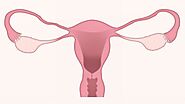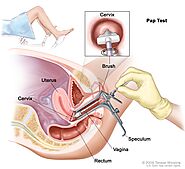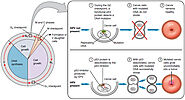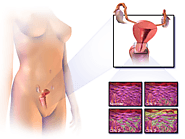-
About
- About Listly
- Community & Support
- Howto
- Chrome Extension
- Bookmarklet
- WordPress Plugin
- Listly Premium
- Privacy
- Terms
- DMCA Copyright
- © 2010-2025 Boomy Labs


Listly by April Rose Casiple Semogan
In the U.S, more than 13,000 women are diagnosed with invasive cervical cancer each year. It is most frequently diagnosed in women between the ages of 35 and 44 with the average age at diagnosis being 50. Rarely does it affect women aging 20 and below although some signs can be observed during this period.
In celebration of Cervical Cancer Awareness Month, let’s discuss the most important things you need to know about this disease, including its prevention.

First off, let’s get a good grasp of what cervical cancer is. In a nutshell, it is a disease that develops when cancer starts in the cervix. A number of women across the globe are suffering from this disease and most of them are in their late 40s or 50s. If not diagnosed and treated, cervical cancer can spread to other parts of the body and become deadly.

Just like any other disease, cervical cancer has its own signs and symptoms. Most women do not have any signs or symptoms of a precancer. On the other hand, many women with early-stage cervical cancer notice symptoms typically appear. One of the most common symptoms is abnormal vaginal bleeding. It is best to seek immediate medical assistance if you notice the following symptoms.

Cervical cancer has types and grades. Knowing the type of cervical cancer you have helps the doctor decide on what treatment you need. Now, every cervical cancer patient is different. The types of this cancer are named after the type of cell that becomes cancerous: squamous cell cancer, and adenocarcinoma. Sometimes, both types of cells are involved in cervical cancer.

The most common screening test to detect cervical cancer or precancerous cells (dysplasia) is the Pap test. Although there are other procedures required in order to accurately diagnose this disease. Doctors may perform a pap smear or a colposcopy to help diagnose the condition. Moreover, further testing will be done if there's a risk it may have spread. The diagnosis of cervical cancer takes time and a series of examinations are in place.

A risk factor is anything that increases a person's chance of developing cancer. For instance, cervical cancers are caused by infection with one of the high-risk HPV types. Although there are also other factors that trigger the development of cervical cancer. Some of these factors are often overlooked by the public. The risk of developing cervical cancer stays about the same, but the risk of dying from cervical cancer increases as women get older.

At an early stage, cervical cancer can be treatable. In this stage, surgery or radiation combined with chemo may be used. Radiation combined with chemo is usually the main treatment are used during the later stages of cervical cancer. Depending on the stage and type, the methods or procedures vary in each patient diagnosed with the disease.

Living with cervical cancer is challenging. Its effect on your daily life will depend on the stage of cancer and the treatment you're having. However, women can cope up in a number of ways. It may not be instantly, but, eventually, women can learn to live with it. Practical help may also be available from your local authority.

Complications of cervical cancer can occur as a side effect of treatment or as the result of advanced cervical cancer. Side effects of radiation therapy include fatigue, diarrhea, skin changes, nausea, vomiting, etc. In this article, complications that can occur in advanced cervical cancer are discussed, and tips on how to manage it as well.

Vaccines to prevent cervical cancers are now available. It is one of the most common procedures to help prevent cervical cancer in women. Some vaccines can prevent most cases of cervical cancer if given before a girl or woman is exposed to the virus. Before making a decision to take a vaccine, be sure to ask your doctor and make sure to have it administered by a medical professional.

Old as time, yet, prevention is always better than cure. Cervical cancer can often be prevented by having regular screenings to find any precancers and treat them. Also, getting an HPV vaccination is a good way to protect yourself. On top of that, maintaining a healthy, and safe sexual life is a must. A healthy lifestyle is a contributing factor, too.
